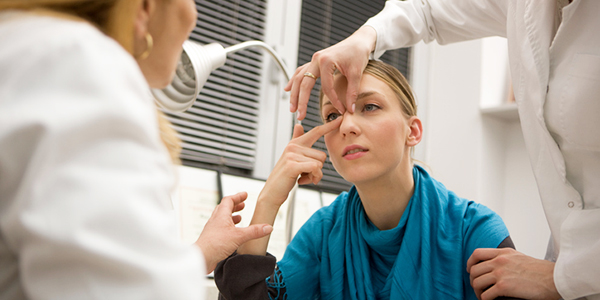Ear, nose and throat specialists in the Sutter Health network provide surgery to help open airways in people who have chronic sinusitis, deviated septums, nasal polyps and other problems. Here are surgeries for common nasal and sinus problems.

Get personalized, coordinated care across Northern California through the Sutter network.
View Patient ResourcesMake appointments, message your doctor and more through our patient portal.
Enroll NowAccess award-winning, comprehensive primary and specialty care for your whole family.
View All ServicesOur contributions to medical research and education lead to better healthcare outcomes.
Research at SutterJoin our robust training programs led by nationally known healthcare leaders.
Explore OpportunitiesExplore the ways we provide innovative, compassionate care through our network.
Learn About Sutter HealthShape the future of healthcare and build your career within our diverse teams.
Find Jobs
Get personalized, coordinated care across Northern California through the Sutter network.
View Patient ResourcesMake appointments, message your doctor and more through our patient portal.
Enroll Now
Make appointments, message your doctor and more through our patient portal.
Enroll NowAccess award-winning, comprehensive primary and specialty care for your whole family.
View All ServicesOur contributions to medical research and education lead to better healthcare outcomes.
Research at SutterJoin our robust training programs led by nationally known healthcare leaders.
Explore Opportunities
Join our robust training programs led by nationally known healthcare leaders.
Explore OpportunitiesExplore the ways we provide innovative, compassionate care through our network.
Learn About Sutter HealthShape the future of healthcare and build your career within our diverse teams.
Find Jobs
Shape the future of healthcare and build your career within our diverse teams.
Find JobsEar, nose and throat specialists in the Sutter Health network provide surgery to help open airways in people who have chronic sinusitis, deviated septums, nasal polyps and other problems. Here are surgeries for common nasal and sinus problems.

Using a small scope and tiny incisions, surgeons can perform minimally invasive surgery to correct sinus pain and blockages known as sinusitis. Endoscopic surgery requires shorter recovery times and results in less scarring than traditional surgical methods.
Check-ups, screenings and sick visits for adults and children.
Expertise and advanced technologies in all areas of medicine.
For serious accidents, injuries and conditions that require immediate medical care.
After-hours, weekend and holiday services.
Convenient walk-in care clinics for your non-urgent health needs.